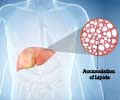A new study has added to the list of health problems posed by smoking, by finding that it also contributes to atherosclerosis, or hardening of the arteries.
A new study has added to the list of health problems posed by smoking, by finding that it also contributes to atherosclerosis, or hardening of the arteries.
Researchers from Weill Cornell Medical College in New York City pinpoint their evidence to the addictive chemical in cigarettes – nicotine.By comparing reduced-nicotine cigarettes like Quest 3 and Eclipse with regular cigarettes, researchers discovered that the degree of cigarette-smoke induced atherosclerosis in mice correlated with the levels of nicotine -- the higher the nicotine, the more disease.
"Right now, the general consensus is that the problem with cigarettes is tar and that nicotine is safe. That's why you can buy nicotine gum or patches to help you stop smoking. Our study presents new evidence that nicotine may not be safe at all, especially for your heart," says Dr. Daniel F. Catanzaro, principal investigator of the study.
The new study looked at two so-called "potentially reduced exposure products" (PREPs) -- Eclipse and Quest.
The study found that mice exposed to smoke from low-nicotine cigarettes had significantly smaller atherosclerotic lesions, compared to those exposed to regular cigarettes but still larger than lesions in control mice not exposed to cigarette smoke, which showed the least evidence of atherosclerosis.
"While our study seems to suggest that low-nicotine cigarettes are safer, we also know that smokers adjust their smoking habits to maintain their level of nicotine. In other words, if you switch to a low-nicotine product, you will probably increase the number of cigarettes you smoke, or change the way you smoke to get more nicotine out of each cigarette. The best thing to do is quit," says Dr. Catanzaro.
Advertisement
"These findings are preliminary. Going forward we will want to look at whether doping cigarettes with extra nicotine increases their atherogenic potential; whether blockers of nicotine reduce atherosclerosis; and if oral administration of nicotine has the same effects," says Dr. Catanzaro.
Advertisement
Source-ANI
LIN/J











